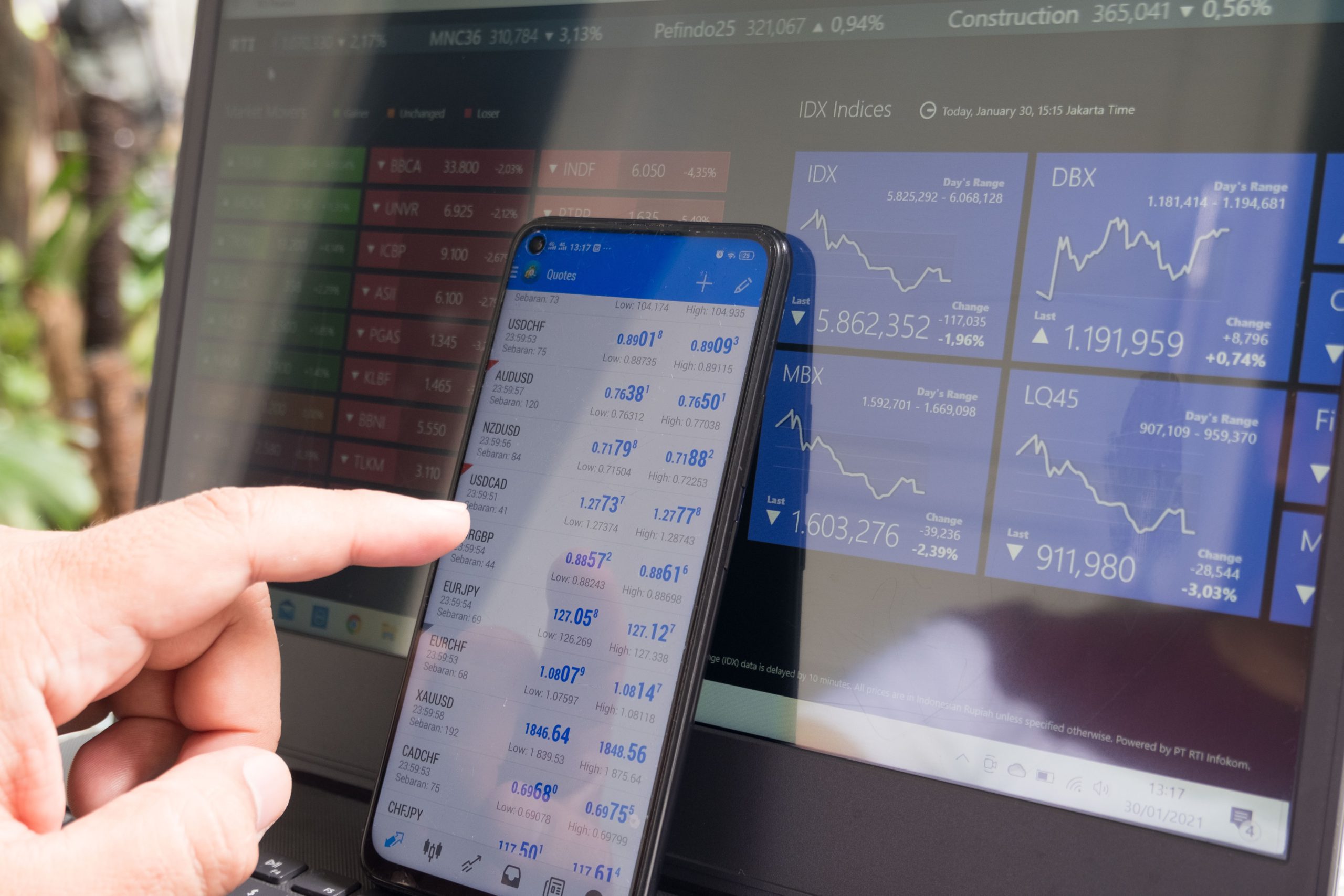Options
Is Options Trading Better Than Stocks?
As we mentioned, options trading can be riskier than stocks. But when done correctly, it has the potential to be more profitable than traditional stock investing or it can serve as an effective hedge against market volatility. Stocks have the advantage of time on their side.
How do options work in trading?
If you buy an options contract, it grants you the right, but not the obligation to buy or sell an underlying asset at a set price on or before a certain date. A call option gives the holder the right to buy a stock and a put option gives the holder the right to sell a stock.
How much money do you need to options trade?
Iron condors for example will be hard to trade with less than $5,000. Also, you need to keep in mind that commissions and fees are going to have a much larger impact on a small account. Ideally, you want to have around $5,000 to $10,000 at a minimum to start trading options.
What is meant by option trading?
Options trading allows you to buy or sell stocks, ETFs etc. at a specific price within a specific date. This type of trading also gives buyers the flexibility to not buy the security at the specified price or date. … The right to buy a security is known as ‘Call’, while the right to sell is called ‘Put’.
Does Warren Buffett trade options?
Warren sells options with a very long term time horizon of usually more than 15 years, which is overpriced in his view due to the limitations of the Black-Scholes Model. Using the premium he receives from selling puts, he uses it to invest. His options are also “European”.
Basics of Option Profitability?
A put option buyer makes a profit if the price falls below the strike price before the expiration. The exact amount of profit depends on the difference between the stock price and the option strike price at expiration or when the option position is closed.
What is options trading example?
Example: You buy one Intel (INTC) 25 call with the stock at 25, and you pay $1. With the stock at 34, you sell one 35 call for $1.00. … If the stock is still at 34 at expiration, the option will expire worthless, and you made a 3% return on your holdings in a flat market.
How to Start Day Trading with $100?
Step 1: Select a brokerage. Finding an online broker that allows you to trade in the style you want will help you successfully conduct trades.
Step 2: Pick the securities you want to trade. …
Step 3: Work out a strategy. …
Step 4: Begin trading.
Can I make a living trading options?
If you’re wondering can I make a living trading options…then Yes, you can trade options full time and make a comfortable living doing so. … Finding your entry and exit strategies are the best way to make a living with stock options. When holding options contracts overnight, buy near the close of the day.
What are the risks of options trading?
As an options holder, you risk the entire amount of the premium you pay. But as an options writer, you take on a much higher level of risk. For example, if you write an uncovered call, you face unlimited potential loss, since there is no cap on how high a stock price can rise.
Can you trade options with $1,000?
No. $1,000 is simply not enough to start trading options. … $1,000 is simply not enough to start trading options. You realistically need more than $25,000 to escape the pattern day trading rule, and even more appropriately you need $125,000 and a portfolio margin account to really do it right.
Are options riskier than stocks?
Options can be less risky for investors because they require less financial commitment than equities, and they can also be less risky due to their relative imperviousness to the potentially catastrophic effects of gap openings. Options are the most dependable form of hedge, and this also makes them safer than stocks.
Is trading options similar to gambling?
Contrary to popular belief, options trading is a good way to reduce risk. … In fact, if you know how to trade options or can follow and learn from a trader like me, trading in options is not gambling, but in fact, a way to reduce your risk.
Are options worth it?
When you buy a put option, you get the right but again not obligated to sell the stock at the strike price before the expiration date. Yes, Option Trading is very much worth it.
10 Options Strategies to Know
- Bull Call Spread.
- Bear Put Spread.
- Protective Collar.
- Long Straddle.
- Long Strangle.
- Long Call Butterfly Spread.
- Iron Condor.
- Iron Butterfly.
How can I turn $100 into $1000?
Here are 10 ways to turn $100 into $1,000 or more. Let’s get started!
Let’s get started!
- Start a business. …
- Use a high-yield savings account. …
- Invest in yourself. …
- Invest in a 401(k) or IRA. …
- Pay credit card debt. …
- Enroll in a course. …
- Buy and sell.
How much do I need to invest to make $1000 a month?
So it’s probably not the answer you were looking for because even with those high-yield investments, it’s going to take at least $100,000 invested to generate $1,000 a month. For most reliable stocks, it’s closer to double that to create a thousand dollars in monthly income.
Is it better to sell or buy options?
Option selling, therefore, is more versatile than option buying. An option seller mostly has a much higher probability of profit (POP) than an option buyer. This is because an option seller does not have to predict big price movements in the underlying asset.
Can you make more money with options than stocks?
This being said, however… with options, you can make money when the stock moves in any of the THREE directions (up, down, sideways), but with stocks, you can only make money in one direction; UP for long stocks, and DOWN for short stocks. … Because options trading is inherently more complex than stock trading.
Are puts riskier than calls?
Selling a put is riskier as a comparison to buying a call option, In both options are looking for long side betting, buying a call option in which profit is unlimited where risk is limited but in case of selling a put option your profit is limited and risk is unlimited.
Why do most traders fail?
This brings us to the single biggest reason why most traders fail to make money when trading the stock market: lack of knowledge. … More importantly, they also implement strong money management rules, such as a stop-loss and position sizing to ensure they minimize their investment risk and maximize profits.
What is the best way to invest $10 000?
Now let’s look at some ideas on how to invest $10,000:
- Invest With Betterment. …
- Buy Worthy Bonds. …
- Invest in a 401k to Get the Company Match. …
- Max out an IRA. …
- Invest in a taxable account. …
- Pay off high-interest credit card debt. …
- Increase your emergency fund. …
- Fund an HSA account.
How can I turn $100 into $1 million?
A thorough introduction to finance from the people behind BizKid$, How to Turn $100 into
$1 Million includes chapters on setting financial goals, making a budget, getting a job, starting a business, and investing smartly – and how to think like a millionaire.
How much money do I need to invest to make $500 a month?
To make $500 a month in dividends you’ll need to invest between $171,429 and $240,000, with an average portfolio of $200,000. The actual amount of money you’ll need to invest in creating a $500 per month in dividends portfolio depends on the dividend yield of the stocks you buy.
How much money do I need to invest to make $3000 a month?
By this calculation, to get $3,000 a month, you would need to invest around $108,000 in a revenue-generating online business. Here’s how the math works: A business generating $3,000 a month is generating $36,000 a year ($3,000 x 12 months).
Options traders in the United States make an average salary of $114,222 per year or $54.91 per hour. People on the lower end of that spectrum, the bottom 10% to be exact, make roughly $68,000 a year, while the top 10% makes $190,000. As most things go, location can be critical.
Average Wage and Salary
The Bureau of Labor Statistics groups stock traders under the job category, “Securities, Commodities, and Financial Services Sales Agents.” The average annual salary of these professionals as of May 2011 was just shy of $99,000 per year. The median of all reported salaries was about $72,000. Half of stock traders reported annual incomes ranging from $42,000 to $132,000.







